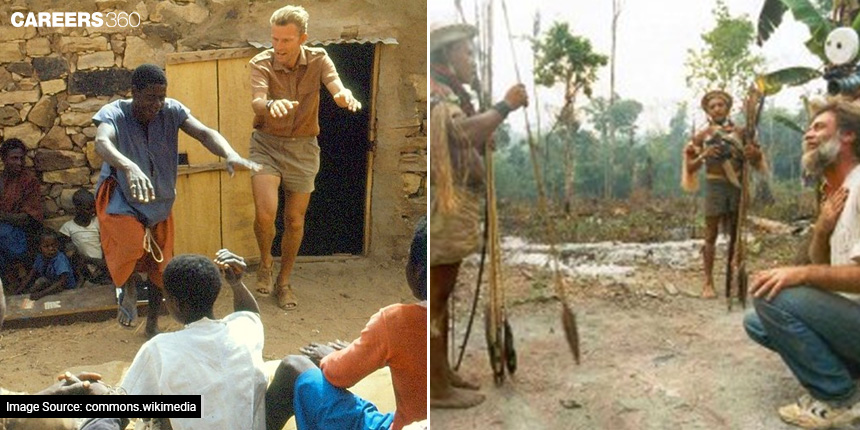Career Trends In The Field Of Social Anthropology In India
Can you recall any discipline like sociology where work and study happen on the field and not much in offices or classrooms? For a social anthropologist, the office is where they are able to meet and converse with people, with the society. A social anthropologist works to uplift the society, they study human societies, their ways, their culture. Are you thinking, what kind of work happens outside the four walls of an office? Or, how is it even a career? How much does social anthropology as a career even pay?

If you have an interest in studying humans in the most creative and unique ways, and if you hold a keen interest in gaining knowledge practically and not just through books and papers, then you are on the right page and social anthropology can be a very satisfying career choice for you.
Let’s explore the insightful journey of social anthropology, which studies groups of people with learned behaviours in specific environments.
How To Become A Social Anthropologist?
In India, becoming a social anthropologist requires a process of formal education, fieldwork, research, and real-world experience.
First you need to complete a higher secondary education i.e. 10+2 either from the humanities stream or from science with minimum marks as given by respective institutes. Then a Bachelor's degree (preferably BA or BSc) institution in anthropology, sociology or other related fields.
Some of the top college or universities in India where you can take up BSc or BA in anthropology are: Miranda House, Delhi, Hansraj College, Delhi, Kamala Nehru Women's College, Bhubaneswar.
During your undergraduate studies, you can also choose anthropology-related courses and assignments that can create a strong basis, such as cultural anthropology, social theory, research methodologies, and ethnographic fieldwork.
After that you can pursue a master's degree in social anthropology or a related field. This you can pursue at institutes such as Tata Institute Of Social Science (TISS), Doon University and Indira Gandhi National Open University (IGNOU).
Try to gain more field related insights of social anthropology through fieldwork or internships as part of your coursework or thesis, during your master’s programme. This will help in building research skills.
If you are an aspiring student in the field of social anthropology then you can also pursue PhD in order to gain a deep insight of the field. In doctoral programs you need to do extensive research, usually related to ethnographic fieldwork. Which will sharpen your anthropological skills to a good extent.
Careers In Social Anthropology
In India, social anthropologists have the chance to significantly influence society by using their knowledge of cultural dynamics to address serious social and cultural challenges. Therefore, anthropology is one such field which opens up the gateways to almost any industry or streams existing around such as healthcare, food, technology, etc. Moreover, just like any other professions there are jobs and career scopes for social anthropologists in both sectors government as well as private.
Government Sectors
A social anthropologist has more deep and varied knowledge than any other sociology professional of the societies in context of the cultural and individual behaviour. Hence, they can give you more detailed and exploratory information about community wise psychological patterns and behaviours. So, on the basis of their ability to analyse behaviours of societies and communities as a whole or individually they can easily identify the strengths and pit holes in them. Which makes them relevant for policy and law making programmes. They play a major role in government and regulatory authorities such as the Ministry of Culture, Ministry of Rural Development, Archeological Survey of India and many state government departments etc. Other government opportunities for them are available in museums as curator, archivists, researchers, educators etc.
Private Sectors
Not only in the field of academics and researching, although it’s their key role, but social anthropologists can also work as a consultant or consumer behaviour analyst to the companies which are catering to our culturally rich and varied communities. For instance, big fashion brands and companies usually seek inspiration for their new designs and trends. Where anthropologists having hands-on experience and knowledge of the communities (to whom these companies cater to) can tell a lot about their current obsession and requirements in detail. They can also play a significant role as ‘Cultural Reporter’ in media and journalism by reporting on cultural and social challenges for newspapers, magazines, or broadcast media.
If anyone is looking for a career abroad then anthropologists have vast scope in organisations such as UNICEF, UNESCO, and the World Health Organisation. They can work on projects based on culture, education, and social development.
Other than that they can work independently as an ethnographer, by conducting research and providing insights to various clients, including businesses, government agencies, and nonprofitable organisations.